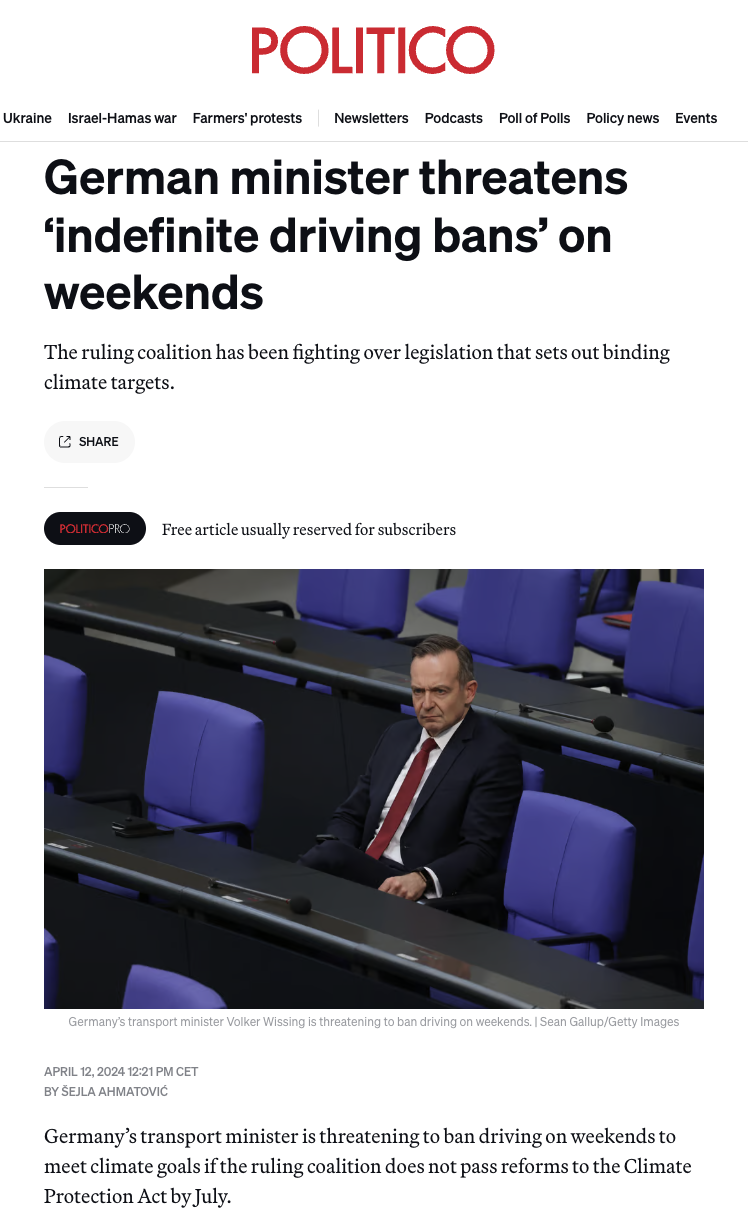Retired 40-Year Veteran German Climatologist: “CO2 A Scapegoat” …IPCC “A Marketing Organization”
By P Gosselin on 27. June 2017
The German-language RT recently conducted an interview with retired climatologist Prof. Werner Kirstein concerning President Donald Trump’s decision to pull out of the Paris Accord and the state of climate “science” itself. Hat-tip EIKE.
Image cropped from RT.
Kirstein, a German climatologist of 40 years, has been one of Germany’s most high-profile critics of climate alarmism. He maintains that the warming over the past decades has been mostly due to natural causes associated with the climb out of the Little Ice Age, and therefore is not surprising.
“An invention”
In the RT interview, on the subject of Trump’s recently announced withdrawal, Kirstein says that it is no surprise because within the Republican party itself there have been a number of politicians who for 20 years long haven’t believed in man-made climate change, and that over the past ten years “hundreds of US scientists say it’s an invention“, and who even said so in a signed a letter to former President Obama.
On the claims made by the IPCC that man is behind the recent climate change (4:50 mark) Kirstein doesn’t buy it, reminding us that in the past CO2 has always varied, and that man’s contribution is puny in comparison to the natural ones.
In total Kirstein agrees that CO2 is “a harmless gas” and calls the IPCC’s conclusion that CO2 drives global temperature based on a coincidental correlation over 30 years, 1970 – 2000, a mistake.
When I go back and look at history, there’s absolutely no relationship between CO2 and temperature.”
CO2 used as a scapegoat
At the 9-minute mark the retired professor tells that the claim that CO2 is a greenhouse gas is highly controversial, and that the trace gas is in fact being used as a scapegoat by politicians, and says that the odds of cooling, based on history, are greater. “Eventually it is going to come.”
IPCC is about marketing, “fundamentally corrupt”
On the question as to why there has been so much climate-catastrophe panic spread by the media, Kirstein blames economic interests, and that governments of course can always find scientists who are willing to go along with the catastrophe scenarios – naming the PIK Potsdam Institute as an example.
He views the IPCC as a “marketing organization” run mostly by sociologists who have the task of marketing climate change. He quotes Vincent Gray (13:00): “The IPCC is fundamentally corrupt.” Kirstein tells the reporter: “That says it all, doesn’t it!” He adds: “Today you do not find scientists on the IPCC, instead you have political scientists.”
Kirstein reminds there is a big difference between climate-protection and environmental protection, and agrees the environment needs to be protected, but “one does not have anything to do with the other.”
Climate science is “a lie”
Kirstein finds it’s okay to be politically in favor of eliminating fossil fuels, but then “you shouldn’t lie to the public” about why it should be done.
When Kirstein is asked why he gives speeches criticizing climate science, he says (17:20):
Because I’m completely against it. Because I see that it just cannot be that the people are being dumbed down by having them believe that there is a climate catastrophe through CO2.”
Driven by funding
On the subject of consensus, Kirstein says he is not alone as a skeptic in Germany, and especially worldwide. Of those scientists who insist that man-made climate change is real, he points out that most of them have their sights on funding.
I know some colleagues here in house, for example, and other colleagues not in Leipzig, and others here in Leipzig, who profit from the funding. You simply just do it, and and you don’t speak about your opinion. In private discussions, I’ve heard: ‘Well, you know, how am I supposed to make a living?’”
He summarizes the driving factor behind climate research, using a famous saying: “Whose bread one eats, whose words one speaks.”



